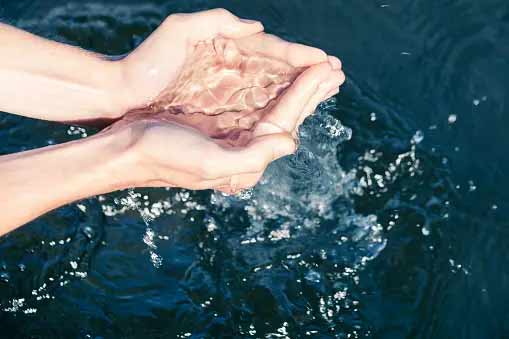
In this guide, we will provide you with practical tips and suggestions to help you conserve water and make your bathroom more eco-friendly. Saving water not only benefits the environment but also helps you reduce your water bills. Whether you’re looking to make small changes or overhaul your bathroom habits, we’ve got you covered.
Install Water-Efficient Fixtures
One of the most effective ways to save water in your bathroom is by installing water-efficient fixtures. By replacing your old bathroom fixtures with low-flow alternatives, you can significantly reduce water consumption without compromising on performance. Here are some fixtures to consider:
- Toilets: Look for toilets with a dual-flush system or ones that use less water per flush.
- Showerheads: Choose low-flow showerheads that maintain adequate water pressure while conserving water.
- Faucets: Install aerators on your faucets to limit the flow rate without sacrificing water pressure.
Fix Leaks Promptly
A leaking faucet or toilet can waste a significant amount of water over time. Even a small drip can add up to several gallons of water wasted each day. Therefore, it’s essential to fix any leaks promptly. Here’s what you can do:
- Check for leaks: Regularly inspect your faucets, showerheads, and toilets for any signs of leakage.
- Replace faulty parts: If you notice a leak, replace the faulty parts or call a plumber to fix the issue.
- Upgrade outdated plumbing: Consider upgrading your plumbing system to prevent leaks and save water in the long run.
Take Shorter Showers
Long showers can be relaxing, but they also consume a significant amount of water. By reducing your shower time, you can save gallons of water every day. Here are some tips for taking shorter showers:
- Set a timer: Challenge yourself to finish your shower within a specific time limit.
- Use a low-flow showerhead: A low-flow showerhead can help reduce water usage without sacrificing your shower experience.
- Turn off the water: While shampooing or applying soap, turn off the water to avoid unnecessary wastage.
Collect and Reuse Water
Another way to save water in your bathroom is by collecting and reusing water. Here’s how you can do it:
- Collect shower water: Place a bucket in your shower to collect the initial cold water and use it for flushing the toilet or watering plants.
- Reuse bathwater: If you enjoy taking baths, consider reusing the bathwater for other household tasks like mopping the floor.
- Consider a greywater system: Install a greywater system to recycle water from your bathroom sinks, showers, and tubs for irrigation purposes.

By simply turning off the tap when it’s not needed, you can save a significant amount of water.
Don’t Let the Faucet Run
Leaving the faucet running while brushing your teeth or shaving is a common water-wasting habit. By simply turning off the tap when it’s not needed, you can save a significant amount of water. Make it a habit to:
- Brush your teeth with the tap off: Wet your toothbrush, turn off the water, and only turn it on to rinse.
- Fill the sink for shaving: Instead of letting the water run, fill the sink with a small amount of water for shaving purposes.
Choose Water-Saving Habits
Besides making changes to your fixtures and habits, adopting water-saving practices can make a big difference. Here are some suggestions to help you develop water-saving habits:
- Only flush when necessary: Avoid using the toilet as a trash can, and only flush when you actually need to.
- Use minimal water for cleaning: When cleaning your bathroom, use minimal water instead of letting it run continuously.
- Adjust toilet tank water level: If your toilet tank has an adjustable float, ensure it’s set to an appropriate level to avoid excessive water usage.
Educate Your Household
Saving water in the bathroom is a collective effort that involves everyone in your household. Take the time to educate your family or housemates about the importance of water conservation and encourage them to adopt water-saving practices. A few ways to promote water conservation within your household include:
- Lead by example: Be mindful of your own water usage and demonstrate water-saving habits to others.
- Discuss the benefits: Have open conversations about the benefits of water conservation, such as reduced utility bills and environmental sustainability.
- Display reminders: Place friendly reminders near faucets, toilets, and showers to prompt mindful water usage.
By implementing these water-saving techniques in your bathroom, you can significantly reduce your water consumption and contribute to a more sustainable future. Remember that every drop counts, and small changes can make a big impact. So why not start saving water today?